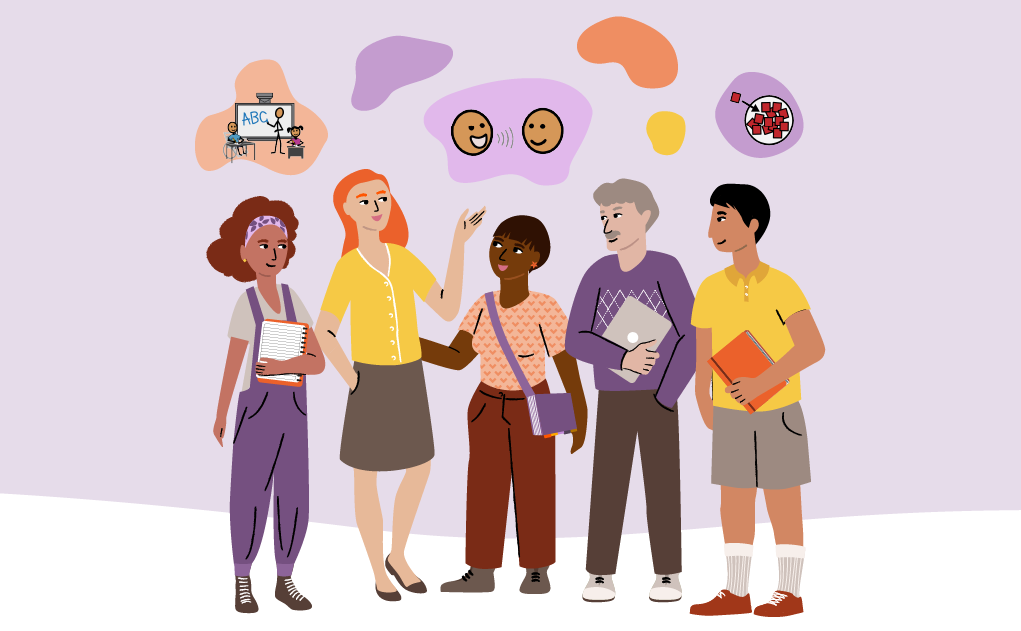Paraprofessionals play a crucial role in supporting students' behavioral and educational needs. By delivering personalized and targeted assistance, they contribute significantly to a student's overall development. To maximize their impact, it is essential to provide paraprofessionals with effective coaching strategies that empower them to facilitate behavior modification successfully (Chopra, R.V. et al 2004). This UE blog post offers valuable insights into coaching techniques for paraprofessionals, enabling them to assist students in developing positive behaviors and achieving academic success.
Begin by explaining the importance of paraprofessionals in supporting students with behavioral difficulties. Emphasize their unique role in implementing behavior modification plans, reinforcing positive behaviors, and providing individualized support in the classroom setting (Chopra, R. V. et. al 2011).

Effective communication and building a relationship is fundamental to the success of any coaching relationship. Encourage administrators and teachers to establish open and consistent communication channels with paraprofessionals. By fostering a collaborative environment, valuable insights and observations can be shared, leading to better behavior modification strategies that are personalized for the individual student (Patterson, K. B. 2006).
Paraprofessionals need access to professional learning communities (PLC) that equip them with the tools and knowledge to manage behavior modification effectively. Highlight the importance of topics such as understanding behavior patterns, utilizing positive reinforcement techniques, collecting data and de-escalation strategies to handle challenging situations (Reddy, L. A. et. al 2021).

Discuss the significance of individualized behavior plans tailored to the specific needs of students. Emphasize the role of paraprofessionals in implementing these plans, tracking progress, and adjusting strategies as necessary. Encourage paraprofessionals to communicate any modifications required to the student's team for a cohesive approach (Chopra, R. V. et. al 2011).
Explain how positive reinforcement techniques can be powerful tools in behavior modification (Rumfola, L. 2017). Encourage paraprofessionals to identify and reward desirable behaviors in students, creating a positive learning environment. Provide examples of effective reinforcement strategies, such as verbal praise (be as descriptive as possible), tokens, or privilege systems (making sure this is connected to the students interest and not our own).

Establishing trust and rapport with students and families is essential for paraprofessionals to successfully implement behavior modification strategies (Broer, S. M. 2005). Offer the first few weeks of school for bonding time between student and paraeducator. Actively shadow the paraprofessional to provide tips on developing positive relationships with students, such as understanding the students likes and loves, active listening, empathetic understanding, and providing consistent support.
Highlight the importance of paraprofessionals engaging in self-reflection and continuous professional development. Encourage participation in workshops, webinars, or conferences focused on behavior modification. By constantly expanding their knowledge and refining their techniques, paraprofessionals can enhance their effectiveness in supporting students' behavioral needs (Wiggs, N. B. et al (2021).

Consistent collaboration between paraprofessionals, parents, teachers and administrators is crucial to enhancing behavior modification efforts (Chopra, R. V. et al 2004). Encourage regular meetings to discuss student progress, share insights, and exchange strategies. This collaboration ensures a well-coordinated approach that promotes consistent behavioral expectations across different settings.
Coaching paraprofessionals on behavior modification for students is a vital aspect of promoting positive change and academic success. By providing comprehensive training programs, emphasizing effective communication, and encouraging ongoing professional development, the impact of paraprofessionals in supporting behavioral interventions will be greatly enhanced. By empowering them with successful coaching strategies, we pave the way for a brighter future for our students.

 RSS Feed
RSS Feed